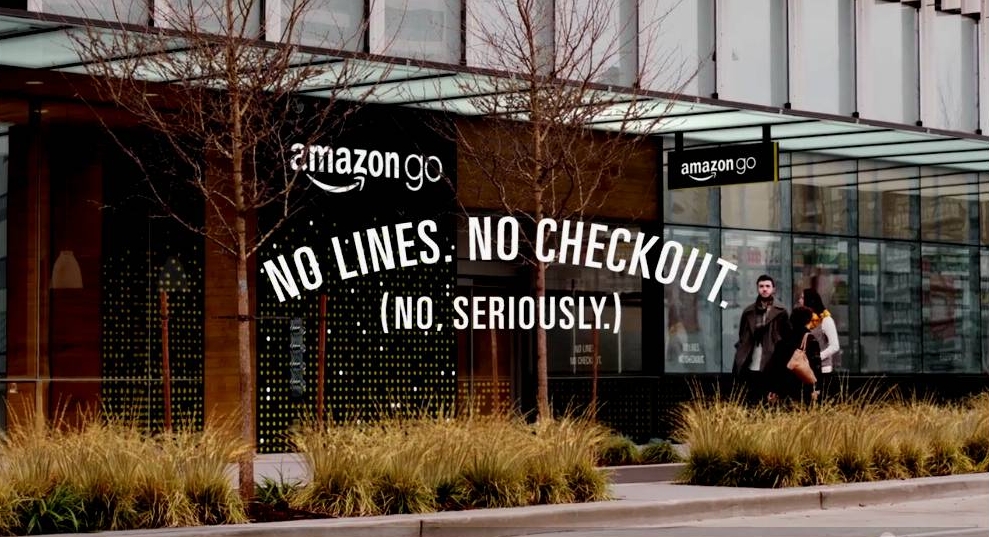You walk in, grab your food and drink, and walk out. And with that 7-Eleven could become a thing of the past.
Amazon has plans to open as many as 3,000 new AmazonGo cashierless stores in the next few years, according to Bloomberg, an aggressive and costly expansion that would threaten convenience chains like 7-Eleven Inc., quick-service sandwich shops like Subway and Panera Bread, and mom-and-pop pizzerias and taco trucks.
Chief Executive Officer Jeff Bezos sees eliminating meal-time logjams in busy cities as the best way for Amazon to reinvent the brick-and-mortar shopping experience, where most spending still occurs. But he’s still experimenting with the best format: a convenience store that sells fresh prepared foods as well as a limited grocery selection similar to 7-Eleven franchises, or a place to simply pick up a quick bite to eat for people in a rush.
The company unveiled its first cashierless store near its headquarters in Seattle in 2016 and has since announced two additional sites in Seattle and one in Chicago. Two of the new stores offer only a limited selection of salads, sandwiches and snacks, showing that Amazon is experimenting with the concept simply as a meal-on-the-run option. Two other stores, including the original AmazonGo, also have a small selection of groceries, making it more akin to a convenience store.
Shoppers use a smartphone app to enter the store. Once they scan their phones at a turnstile, they can grab what they want from a range of salads, sandwiches, drinks and snacks — and then walk out without stopping at a cash register. Sensors and computer-vision technology detect what shoppers take and bills them automatically, eliminating checkout lines.
The challenge to Amazon’s plan is the high cost of opening each location. The original AmazonGo in downtown Seattle required more than $1 million in hardware alone, according to a person familiar with the matter. Narrowing the focus to prepared food-to-go would reduce the upfront cost of opening each store, because it would require fewer cameras and sensors. Prepared foods also have wider profit margins than groceries, which would help decrease the time it takes for the stores to become profitable.
News of the company’s potential ambitions for AmazonGo sent shares of grocery and retail rivals lower. Walmart Inc. declined as much as 0.6 percent, reversing an earlier gain, while Target Corp. dropped about 1.5 percent and Kroger Co. slid as much as 3.1 percent.
Amazon has become the world’s largest online retailer by offering a vast selection and quick, convenient delivery. In physical stores, Amazon is emphasizing convenience over selection to win business. Amazon’s other brick-and-mortar initiatives include about 20 bookstores around the U.S. and the natural grocery chain Whole Foods Market, acquired last year. AmazonGo is the most distinctive of all of its physical stores.
